Search
Did you mean: Aedile?
Summary 
Loading AI-generated summary based on World History Encyclopedia articles ...
Search Results
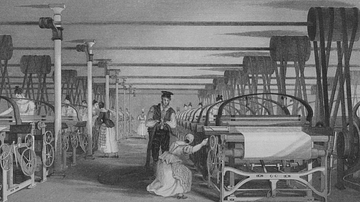
Article
The Textile Industry in the British Industrial Revolution
During the Industrial Revolution (1760-1840), textile production was transformed from a cottage industry to a highly mechanised one where workers were present only to make sure the carding, spinning, and weaving machines never stopped. Driven...
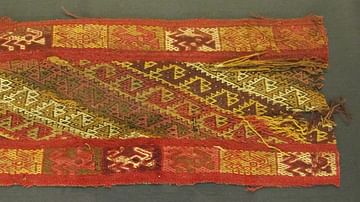
Image
Textile Fragment, Pachacamac
A textile fragment from a tomb at the sacred Andean site of Pachacamac, south of Lima. (Historisches Museum Bern, Switzerland)

Image
Power Looms in a Textile Mill
An 1835 engraving by J. Tingle (from an illustration by T. Allom) of power looms in a textile mill during the Industrial Revolution. The power loom weaving machine was invented by Edmund Cartwright (1743-1823) in 1785. The machine doubled...
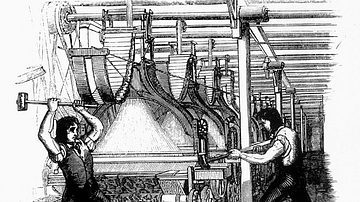
Image
Luddites Smashing Textile Machines
An illustration of Luddites smashing textile machines. The Luddite movement (from 1812) included skilled textile workers who had lost their jobs in the increasingly mechanized textile industry during the Industrial Revolution.
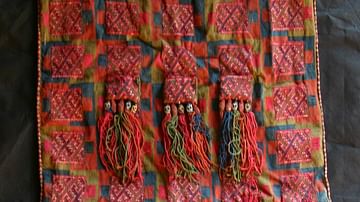
Image
Inca Textile Bag
An Inca textile bag with typical tassle decoration. (Lombards Museum)
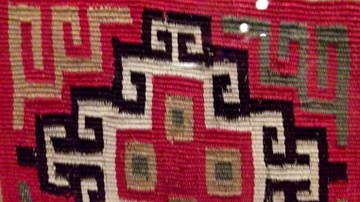
Image
Inca Geometric Textile Motif
A detail from an Inca textile showing a geometric cross design. (Museo de America, Madrid)
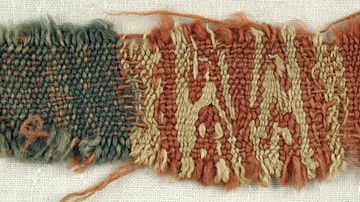
Image
Detail of Coptic Wool Textile
This colourful fragment of a tabby weave is an example of Coptic art. While linen was the preferred textile of ancient Egypt, wool became increasingly important during the Ptolemaic and Roman periods. By Late Antiquity, woolen garments had...
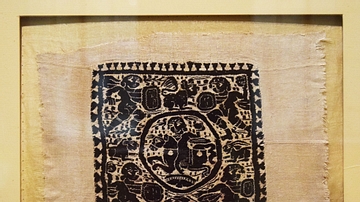
Image
Coptic Textile of St. Joseph
This Coptic linen textile spun from wool depicts scenes from the life of St. Joseph, including images of a horseman, four warriors, animals, a grapevine, a bird, and a running warrior holding a spear. Egypt, c. 300-700 CE. (Pushkin Museum...
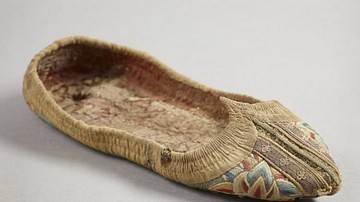
Image
Silk & Textile Shoe from China
6th-7th century CE Chinese shoe composed by two halves joined at the back of the heel and at the toe. The halves are made of superimposed layers of woolen and hemp textiles stitched together and bound with silk along the edges. The sole is...
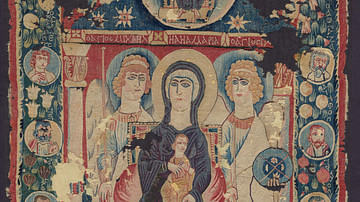
Image
Byzantine Textile Icon of the Virgin and Child
Late antique icon of the enthroned Virgin holding the child Christ and surrounded by the archangels Michael and Gabriel, labeled with Greek inscriptions. Woven tapestry made of colorful wool, from Egypt, dated to the 6th century. In the...